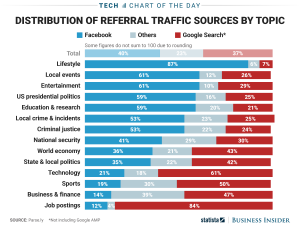The Internet of Governance or the Internet of Google?
When John Perry Barlow wrote A Declaration of the Independence of Cyberspace more than twenty years ago, I don’t think that he could have imagined the Internet as it exists today—the constant connection and never-ending stream of information. In his declaration, Barlow outlined the idea that the government has no power in the sphere of the Internet. It can try to govern the Internet, but it will ultimately be unsuccessful.
I think he makes the accurate point that on the Internet, people will always find a way around government regulation. This is not to say that all users will be capable of getting past firewalls or other restrictions, only that it is especially difficult to completely govern behavior on the open forum that is the Internet. This is due in part to the original design of the Internet, which did not have profits in mind, resulting in a distributed, “collective hallucination,” which our guest speaker Jonathan Zittrain discussed.
I’m not so worried about governments controlling the Internet. I’m more worried about the Internet leviathans—Google, Facebook, Apple, Twitter—governing the Internet through stringent regulation to increase their profits.
If you were to take away Google and Facebook, many would be lost puppies on the Internet. According to Business Insider, Google and Facebook account for 87% of the total referral traffic on the web. In other words, 87% of the links that people click to bring them to an article or other page come from either Facebook or Google. That is a lot of power.

These companies may be benevolent for now, but I fear a future where Google and Facebook decide what belongs on the Internet and what does not. We are already seeing the beginnings of this content censorship with “fake news” and ISIL postings being taken down, but will it stop here? Are anti-Google and anti-Facebook postings next? What about content involving competing products? It seems that we need to regulate these Internet giants.
The real (and unanswered) question is who decides these regulations. The United States? The United Nations? Jon Postel’s ghost? Can we really regulate the Internet?
I think that the only true way to regulate the Internet is through competition. We need more companies offering competing products and platforms so that users have a sense of choice. The forums with positive regulations will be selected by users. This seems less and less likely, however, in the age of Google, but one can hope.
Mike Smith
November 8, 2017 @ 4:14 pm
Great comments and thoughts! I hope that your classmates read your blog post this week.
Like you, I worry that most people don’t think about how much power the companies that run our most popular Internet platforms actually have. You’re asking the right questions, and I’m glad to see you thinking deeply about these questions. I might encourage to also question some of our natural assumptions. Just like I can be a citizen of more than one country, perhaps I can be a “citizen” of a new kind of societal entity on the Internet. Different people live under different regulations based on their physical citizenship. Perhaps I can choose which digital citizenship (i.e., regulatory domain) l’d like to inhabit online? Companies would provide tailored experiences on their platforms by the digital citizenship I bring in the same way they tailor the operations of their subsidiaries in different countries. I’m jus thinking out loud. What do you think?